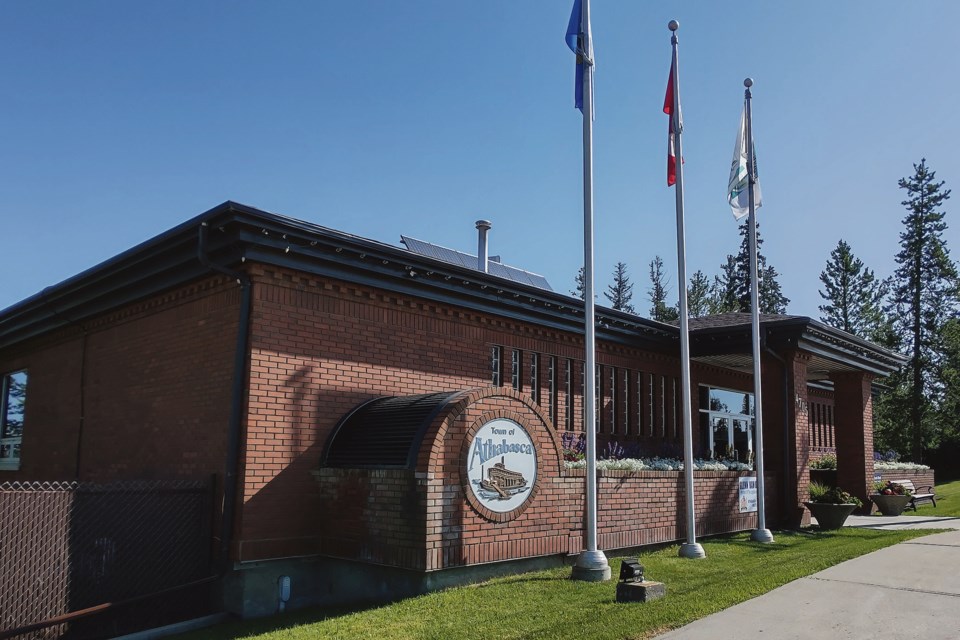ATHABASCA – Athabasca town council decided it would indeed have a land acknowledgement in March, and it has just been a matter of consulting to finesse the details since then, and now it’s official.
“The Town of Athabasca respectfully acknowledge that we are meeting on Treaty 6 and Treaty 8 territory, home to the First People living on Turtle Island and we honour all the First Nations, Métis and Inuit peoples who have lived, traveled and gathered on these lands for thousands of years. We commit to sharing a path forward of respect, learning and opportunity,” reads the final version of the land acknowledgement that was voted on at the Aug. 16 regular council meeting.
Council was presented with five options and soon whittled them down to two. The biggest difference between Option #4 and Option #5 was the listing of the Cree, Saulteaux, Blackfoot, Dene and Nakota Sioux Peoples specifically as the original inhabitants of the lands surrounding Athabasca as well as some additional verbiage in #4 that lengthened it considerably over #5. Coun. Sara Graling voted for #4 but said she liked #5 and recommended a combination of the two.
Ultimately, council opted for brevity, but revised the final version slightly with the addition of the final sentence before voting.
Coun. Edie Yuill brought forward the original motion for a land acknowledgement in October 2021, soon after the new town council was sworn in and she volunteered to sit on the sub-committee. She was joined by Coun. Graling and Coun. Jon LeMessurier. Council also heard from Alma Swan, a local member of the Bigstone Cree Nation and daughter of a residential school survivor, at a November meeting, who explained the importance of the Truth and Reconciliation Commission and its 94 calls to action — one of which encouraged governments to change policies and programs to help repair the harms of colonization.
“They wanted all communities that have colonists living in them to respect the land that was walked on by those who were here before the colonists moved here, and that is part of the Canadian government's Truth and Reconciliation Report,” Yuill said during the Mar. 15 council meeting, noting she originally brought the topic forward in the hopes of helping others understand what happened in the past.
Coun. Dave Pacholok said he didn’t have a preference of the five options and maintained his previous view that such a land acknowledgement was not helpful to reconciliation, and may actually be harmful to the process, but voted along with others around the table to make it a unanimous vote, 6-0. Coun. Loretta Prosser was absent.
“I've struggled with this but I’ll adhere to council's wishes and be more than happy to go with the majority but I really in good faith can’t vote for a motion that in my opinion doesn't benefit the act of reconciliation,” he said. “I feel it brings up the possibility of more hard feelings for past wrongdoings. I just don't believe this is the path I want to go through, but I definitely understand this is the will of council and I certainly get behind whatever we decide.”
“Good job Coun. Yuill,” Graling proclaimed after the vote, and went on to move another motion to refer the new land acknowledgement to the communications committee for recommendations on where and how to use it, which council also approved.



